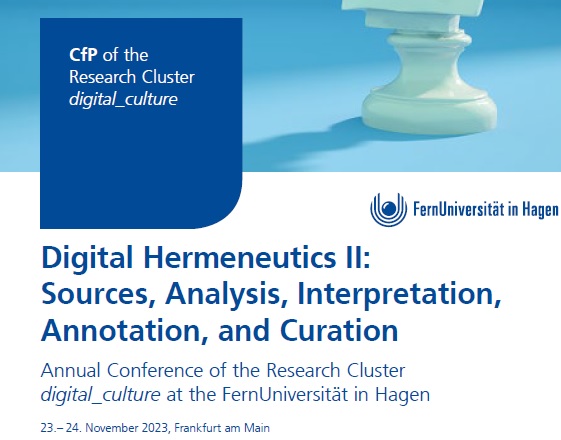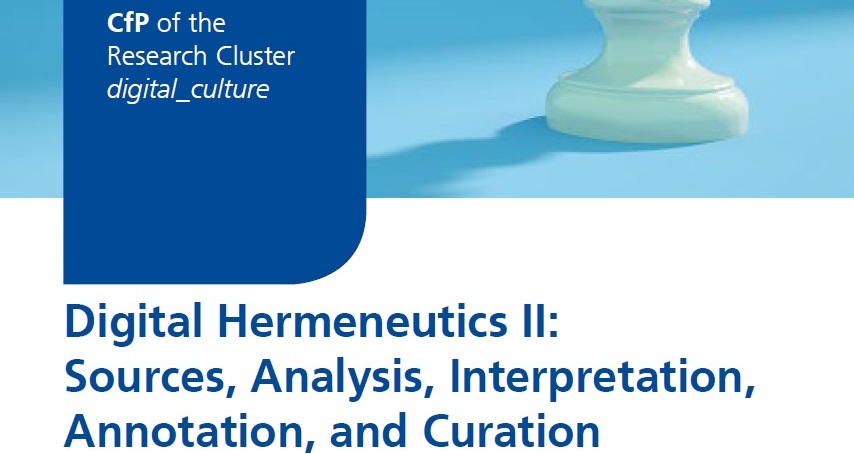|
Digital meets Culture https://www.digitalmeetsculture.net/article/digital-hermeneutics-2023/ Export date: Wed Apr 16 14:48:43 2025 / +0000 GMT |
Digital Hermeneutics II: Sources, Analysis, Interpretation, Annotation, and Curation Digitization has reached almost all areas of science and scholarship. And even in the cultural sciences and humanities, computers, databases and digital tools are increasingly important. Last year‘s annual conference „Digital Hermeneutics: Machines, Procedures, Meaning“ of the research cluster digital_culture dealt with the theoretical and conceptual challenges inherent in hermeneutic methods, tools, and applications. The results of the conference supported understanding and meaning, when algorithms, programs, machines, and other technical procedures contribute to it. Following up on these initial theoretical and conceptual results, we now want to address more technical aspects of methods, technologies, tools, and applications supporting Digital Hermeneutics under the title „Digital Hermeneutics II: Sources, Analysis, Interpretation, Annotation, Curation“ and take a look at digitally supported hermeneutic research processes and anticipate the future of digitized working practices in the cultural sciences and humanities. Without such digital support systems, it will no longer be possible to index, find, annotate, and curate the ever-growing number of digitally available resources for research data. Digital systems are also already in use for analyzing, indexing, enriching, and annotating multimedia data. But what about systems that support the analysis, annotation, and interpretation of digital research data – thus: representation of hermeneutic methods – and their results as well as supporting machine learning, reasoning, and finally automating the documentation of annotation, interpretation, and understanding?  TOPICS OF INTEREST In an exchange between humanities scholars and computer scientists, we want to explore the possibilities and limits of the vision of digitally supported hermeneutics. The following questions should be understood as suggestions for contributions:
Download the Call for Papers and Workshop details (PDF, 250 Kb) |